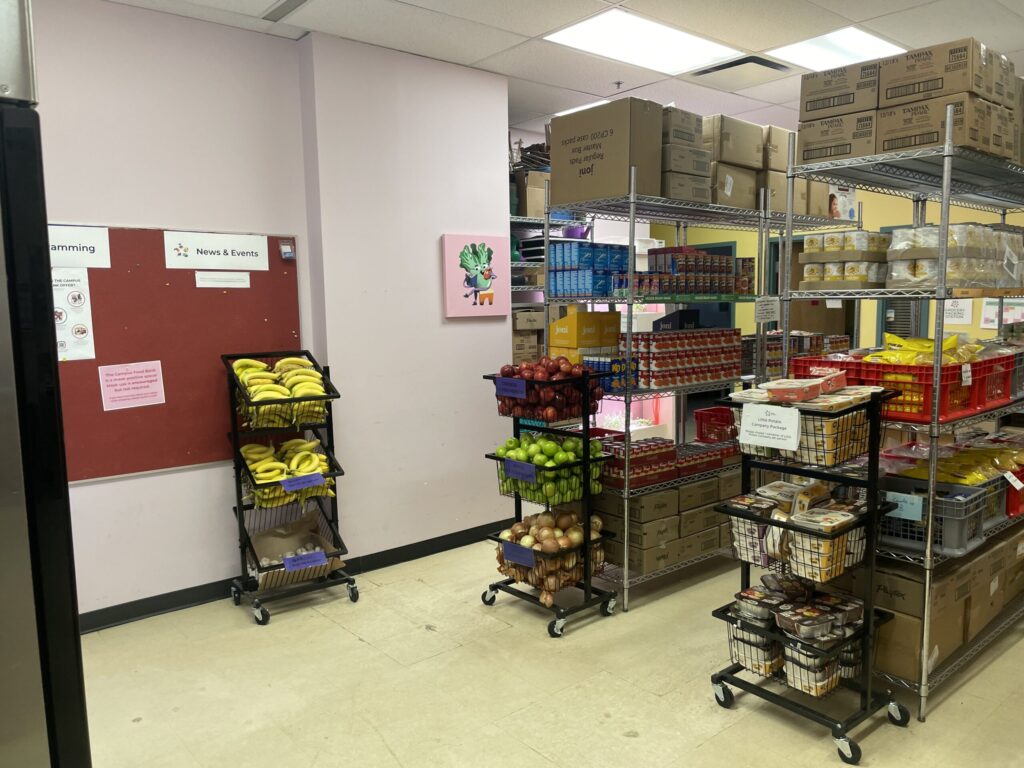The University of Alberta Campus Food Bank (CFB) recently released a report outlining its outlook for the 2023-24 school year. Over the past few years, the CFB has seen an increase in demand for its services, which executive director Erin O'Neill attributes to food inflation.
Despite various sources of support, the CFB ran out of cash at the end of the year and is now operating off emergency savings.
“We ended the year in the red and we can't do that again,” O'Neill said. “Visitor numbers continue to grow. [and] “There has been an increase in demand for supplemental food assistance. There has also been a very worrying increase in food expenditures.”
According to the report, demand for CFBs in 2022-23 is up 142 percent from 2021-22, the largest increase CFBs have experienced in recent years. Additionally, demand for 2023-24 is up 47 percent from 2022-23.
“We've also reached the limit of how many people we can meet in our space, so the low growth rate is artificial because we just can't meet any more people even if we wanted to,” O'Neill said.
Right now, CFB staff is focusing on adjusting services for the expansion as well as ways to manage increasing costs and demand, O'Neill said.
“When is it going to end? It's something we're starting to ask ourselves more and more often because this is an unsustainable increase year after year.”
“To have that much of an increase over two years means demand is different every month,” O'Neill said.
The increased demand has prompted CFB to explore two ways to reduce costs: “Affordable sources of food purchases and increasing sources of free food.”
O'Neill said CFB volunteers deliver food to Edmonton food banks several times a week, and also talk to local businesses about making donations at the end of the day.
To meet the increased demand, CFB has also opened a Community Pantry in the Rutherford Atrium.
“We're constantly striving to stay creative and also respond to feedback from our customers,” O'Neill said. CFB had to double its fundraising efforts two years ago to keep up with increased demand.
“It's not feasible to do that again so we're looking at further cost reductions next year,” O'Neill said.
“There's a lot of potential,” O'Neill said. [for support] In this university community
CFB receives support through grants and donations from various organizations, and also collects tuition fees from undergraduate and graduate students through the U of A Students’ Union (UASU) and the Graduate Students’ Association (GSA).
Additionally, the CFB has received support from U of A alumni, both through the alumni association and individual graduates, O'Neill said, adding that the Division of Students (DoS) has also been instrumental in pushing for resources and has partnered with the CFB and the Department of Facilities and Operations to launch the Community Pantry.
To cut costs, O'Neill said CFB has suspended cooking classes for the time being and moved its snack stations to a cost-share model with host locations.
“Over the next year, we'll be exploring creative ideas, experimenting and looking for ways to do better in this work, not just in our local community but around the world.”



